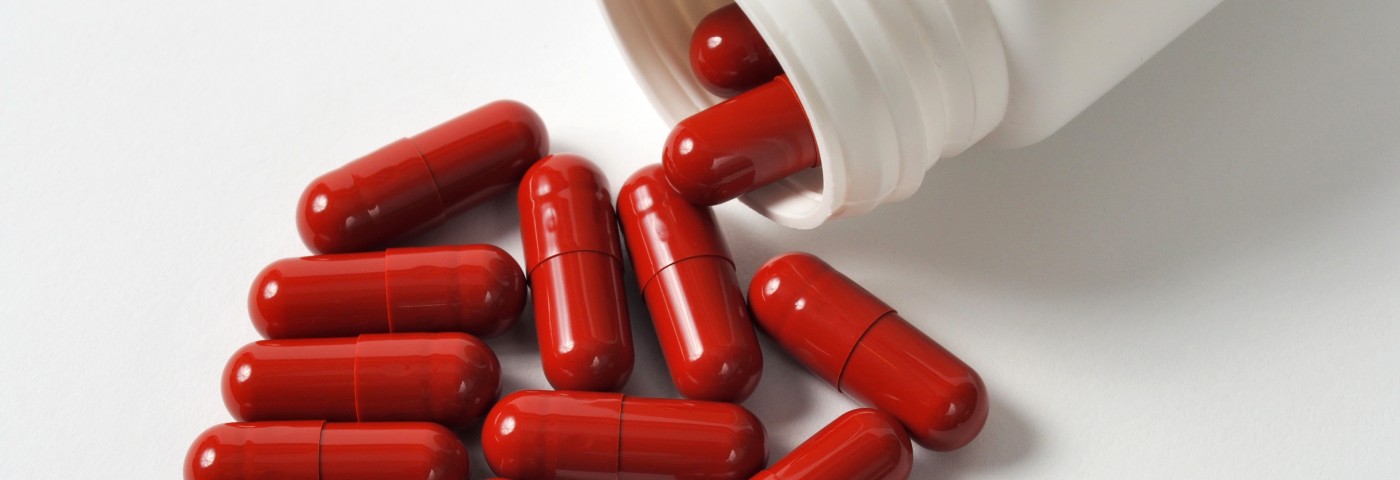
Recently I saw an article in Gastroenterology & Endoscopy News discussing how an old theory that believes Crohn's patients actually suffer from an infection called MAP (short for mycobacterium avium subspecies paratuberculosis). MAP causes a Crohn's like disease (known as Johne's disease) in cattle that reeks havoc on the small intestine and can even kill cattle. It has been shown that the cobblestones in Crohn's patients are similar to the ones found in cattle who suffer from Johne's disease.
The story discusses a woman (Julie Doyle) who suffered from Crohn's disease for 25 years. Julie had 4 surgeries and tried Humira, Remicade, and nearly every other possible therapy. Her existing doctor said she really didn't have any other options. One option was to try an anti-MAP treatment.
The anti-MAP treatment for Julie was taking 600 mg of rifampin (Rifadin), 1,000 mg of clarithromycin (Biaxin), and 500 mg of levofloxain (Levaquin). The levaquin was dropped (due to joint pain) and switched out for low dose naltrexone (which has been shown to benefit Crohn's patients too). What is amazing is 6 weeks after starting the therapy Julie began to feel better and added 10 pounds. After 12 months of taking this prescription Julie had a colonoscopy which showed her Crohn's was in remission. The results show that since the beginning of starting in 2014 Julie was in remission with "complete mucosal healing". Her doctor William Chamberlin came up with the need to try the anti-MAP therapy. Dr. Chamberlin practices gastroenterology practices in San Antonio, Texas and currently has a one year waiting list for patients to see him. Dr. Chamberlin has been using the triple antibiotic therapy since 1994 and has seen success with it. He also claims a 85% remission rate for patients that use a 4 antibiotics (anti-MAP therapy)
What is interesting is that the anti-MAP therapy has shown a 67% remission rate in 244 Crohn's patients. RedHill Biopharma is currently in Phase III trials with the anti-map drug. The study is suppose to wrap up in September 2017 with actual results published in April 2018. This trial has an estimated enrollment of over 400 patients and will look at patients over a 4 year period. Redhill has even developed a MAP test for patients to test their levels of MAP in the blood.
My own view is I believe the anti-MAP therapy can help certain individuals with Crohn's. I don't think it will be a "cure". However, I do believe for some patients it will be beneficial given the evidence from what I have seen over the years. Although, one concern I would have is by taking multiple antibiotics I would worry about c difficile which I contracted by taking an antibiotic. Of course this can be avoided by taking probotics and I would be curious to know if taking probotics would reduce the effectiveness of the anti-MAP therapy. We will get some good information once we get the results of the from the Redhill trial due out next April.
My own view is I believe the anti-MAP therapy can help certain individuals with Crohn's. I don't think it will be a "cure". However, I do believe for some patients it will be beneficial given the evidence from what I have seen over the years. Although, one concern I would have is by taking multiple antibiotics I would worry about c difficile which I contracted by taking an antibiotic. Of course this can be avoided by taking probotics and I would be curious to know if taking probotics would reduce the effectiveness of the anti-MAP therapy. We will get some good information once we get the results of the from the Redhill trial due out next April.